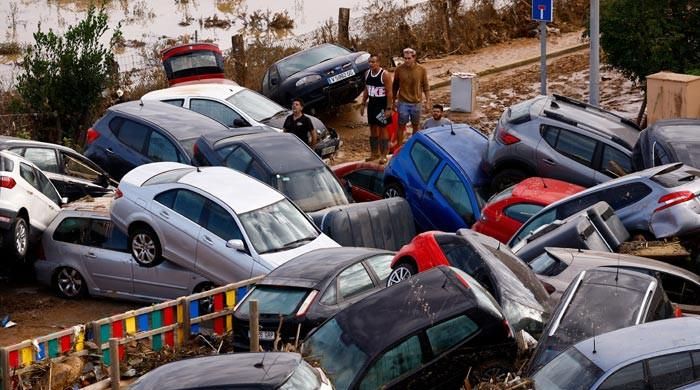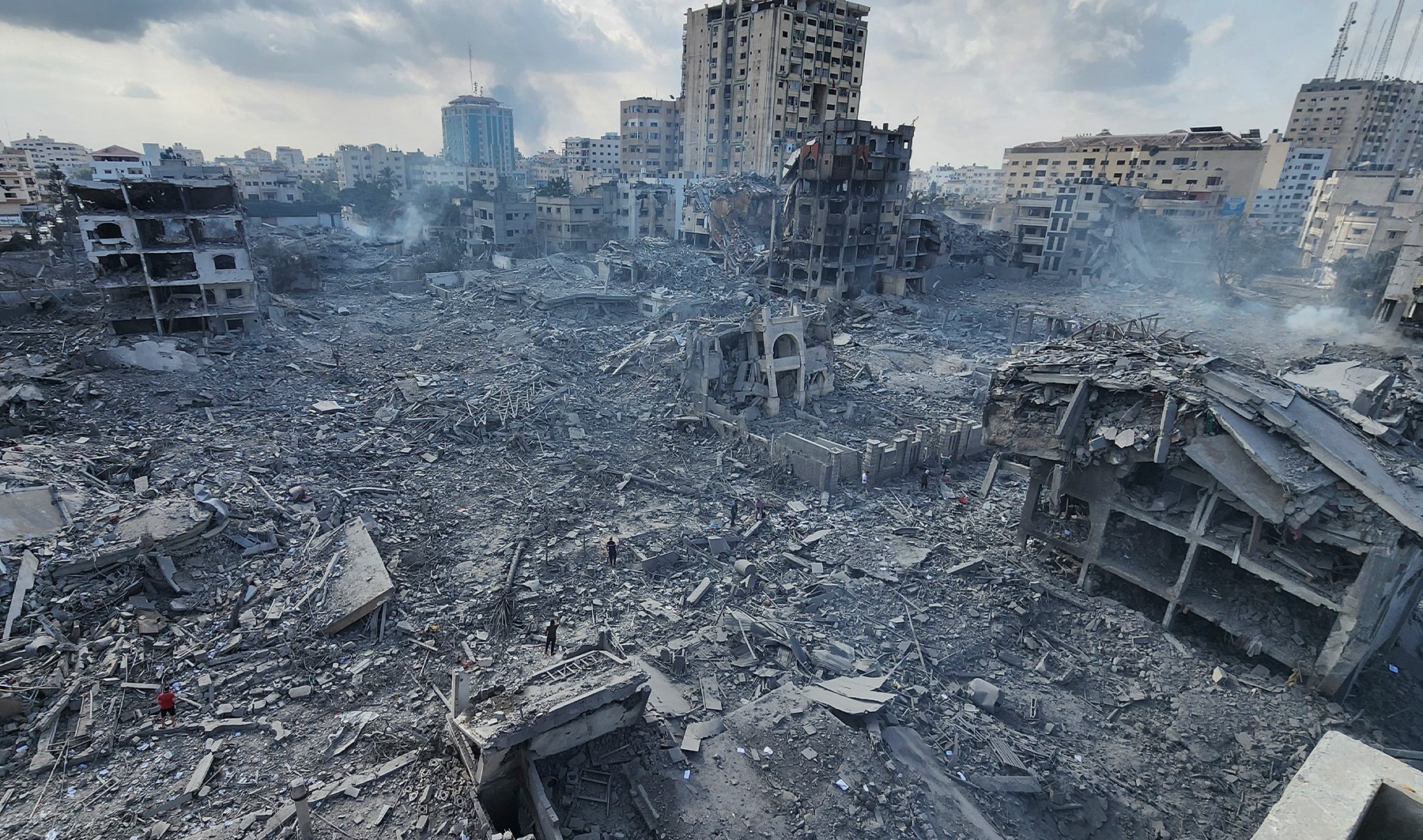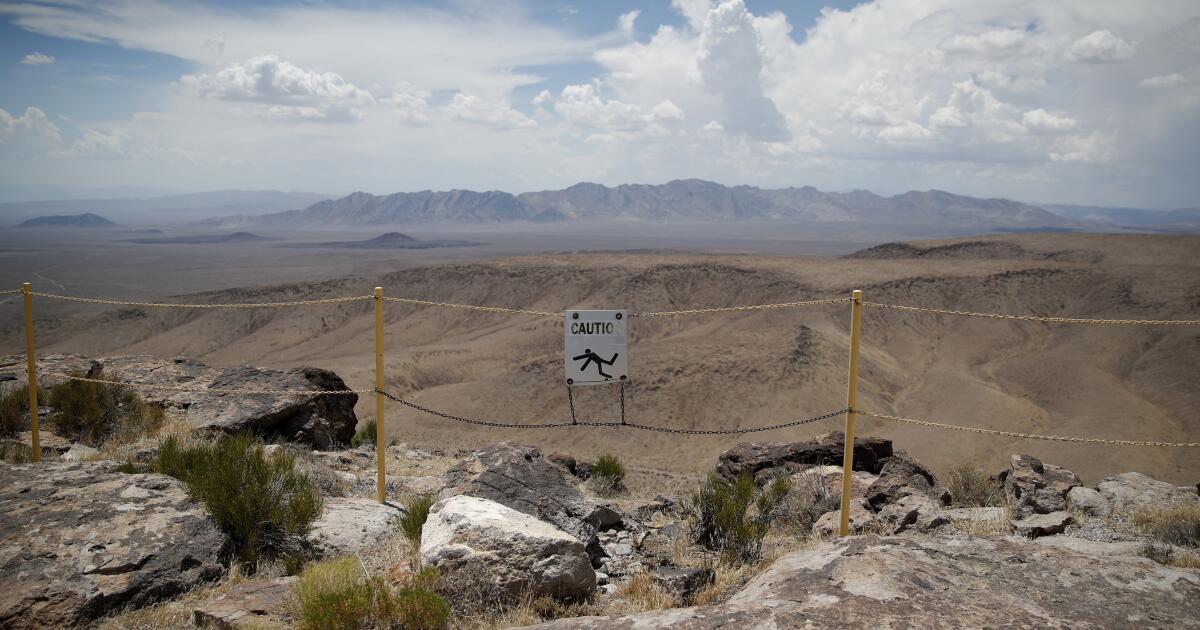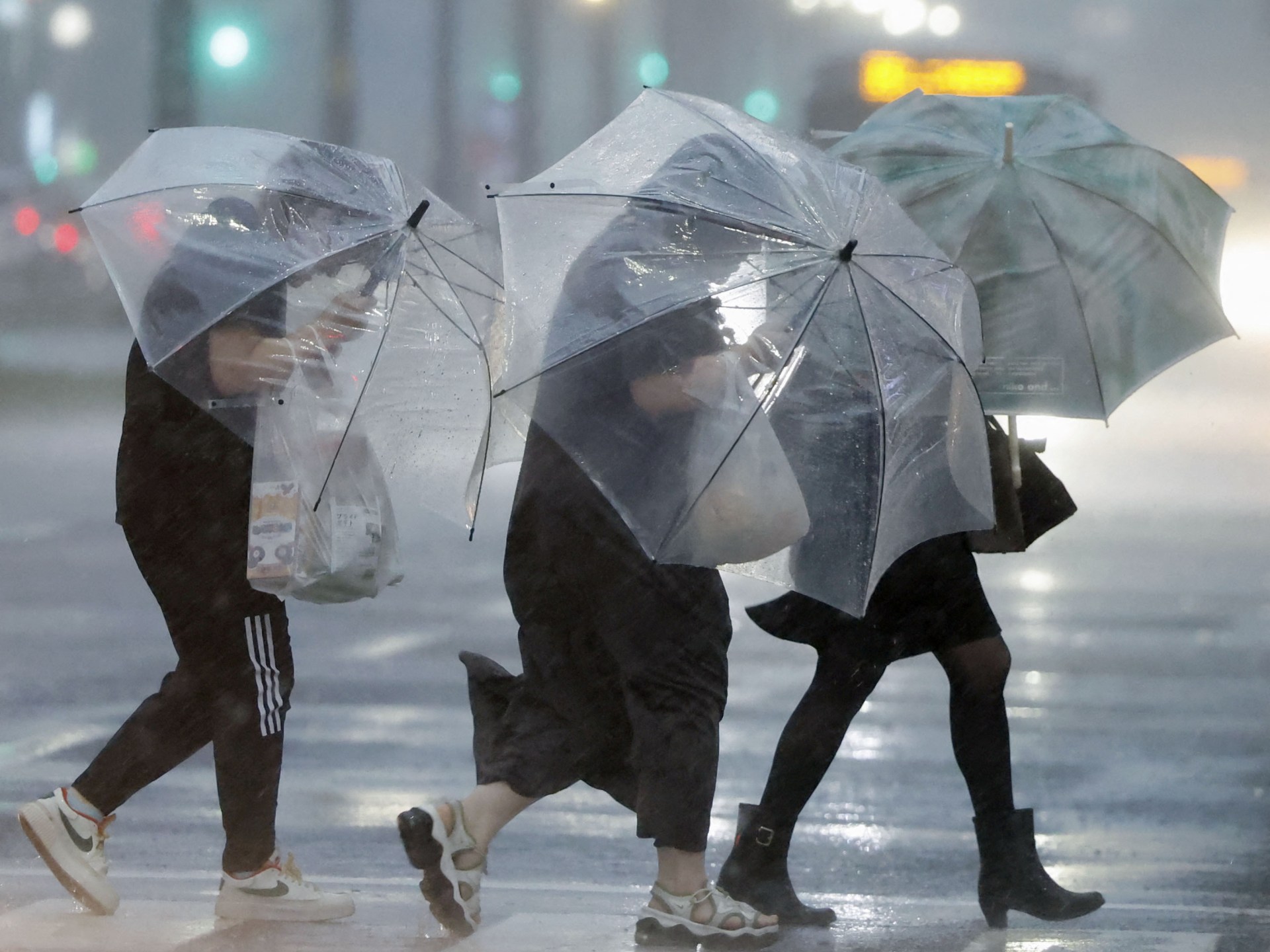- Floods kill at least 158 people with an unreported number still missing.
- More weather alerts are issued as the storm moves north.
- Residents of the most affected areas clean up and count the losses.
VALENCIA: The death toll from devastating flash floods in eastern Spain rose to 158 on Thursday, with rescuers still searching for those missing in what could become Europe's worst storm-related disaster in more than five decades.
“There are a total of 158 people to which we must add dozens and dozens of missing people,” Ángel Víctor Torres, minister responsible for Cooperation with the Regions of Spain, said at a press conference.
On Tuesday, a year's worth of rain fell in eight hours in some parts of the Valencia region.
The tragedy is already the worst flood-related disaster in Spain in modern history, and meteorologists say human-driven climate change is making these extreme weather events more frequent and destructive.
In 2021, at least 185 people died in severe flooding in Germany. Before that, 209 people died in Romania in 1970 and floods in Portugal in 1967 killed almost 500 people.
Rescuers on Thursday discovered the bodies of eight people, including a local police officer, who had been trapped in a garage on the outskirts of the city of Valencia, Mayor María José Catalá told reporters.
In the same neighborhood of La Torre, he said, a 45-year-old woman was also found dead in her home.
Thousands of people carrying bags or pushing shopping carts could be seen crossing a pedestrian bridge over the Turia River from La Torre to Valencia city center on Thursday to stock up on essential supplies such as toilet paper and water.
Opposition politicians accused the central government in Madrid of acting too slowly to warn residents and send rescue teams, prompting the Interior Ministry to say regional authorities were responsible for civil protection measures.
“Those people would not have died if they had been warned in time,” Laura Villaescusa, a neighbor and manager of a local supermarket, told Reuters.
Maribel Albalat, mayor of the nearby town of Paiporta, said residents were not warned of the imminent danger of flooding. He said 62 people had died in his city.
“We found a lot of older people inside their homes and people who were going to look for the car. It was a trap,” he told TVE.
Clinging to the pillar
In Godelleta, a town 37 kilometers (23 miles) west of the city of Valencia, Antonio Molina, 52, described how he survived by clinging to a pillar on a neighbor's porch on Tuesday as water reached his neck.
Molina's house suffered two major floods in 2018 and 2020 and he blamed the authorities for allowing the construction of residential buildings in depressions where water accumulates.
“We don't want to live here anymore,” she said through tears. “As soon as a couple of raindrops fall, we're already checking our phones.”
The floods have battered Valencia's infrastructure, washing away bridges, roads and railways, and submerging farmland in a region that produces around two-thirds of Spain's citrus crops, such as oranges, which the country exports worldwide. world.
About 80 kilometers (50 miles) of roads in the eastern region were severely damaged or impassable, Transportation Minister Oscar Puente said. Many were blocked by abandoned cars.
“Unfortunately there are bodies in some vehicles,” Puente told reporters, adding that it will take between two and three weeks to reestablish the high-speed train connection between Valencia and Madrid.
Visiting a rescue coordination center near the city of Valencia, Spanish Prime Minister Pedro Sánchez urged people to stay home due to the threat of more storms.
“Right now the most important thing is to safeguard as many lives as possible,” he told reporters.
In the hard-hit rural town of Utiel, about 85 kilometers (53 miles) inland, the Magro River overflowed its banks, sending up to three meters (9.8 feet) of water into mostly single-story homes. .
Utiel Mayor Ricardo Gabaldón said at least six people died in the city of about 12,000 people, most of them elderly or disabled who were unable to climb to safety.
Residents used tractor-borne water pumps as they began cleaning up Thursday, and children helped sweep sidewalks. Shattered appliances and furniture were piled up in the middle of the roads and elderly people struggled to walk on the slippery, mud-covered streets.
Pope Francis said he was praying for the people of the region. “I am close to them in this moment of catastrophe,” he said in a video posted on X.
Research group Climate Central said in a report Thursday that a low-pressure system behind Spain's flooding had tapped into an “atmospheric river” carrying excess moisture from the unusually warm tropical Atlantic.
According to its Climate Change Index: Ocean, human-caused climate change has made these elevated sea surface temperatures at least 50 to 300 times more likely.












